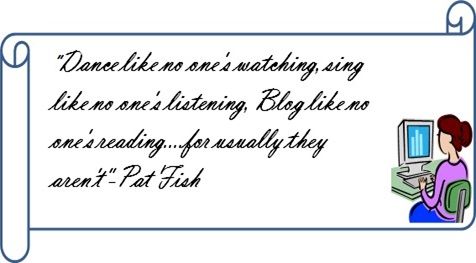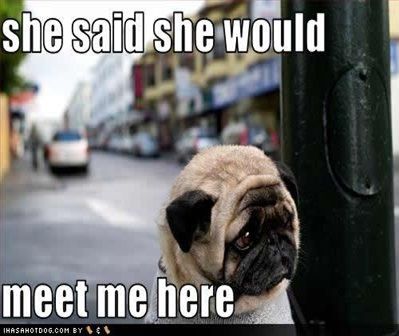
Book Rev-“A Thousand Chestnut Trees”-a novel about Korea.
Pic of the Day

”One Thousand Chestnut Trees” (a novel of Korea) by Mira Stout
So I’m a bit fascinated by Korea in that I am confused as to why this tiny country is divided in half and why the northern half has to suffer so while the southern half explodes in a economic bomb of capitalism. Indeed a famous Internet picture gone viral depicts a view of the Korean peninsula shot from outer space, allegedly. The northern part of the peninsula shows few lights while the southern half is light-filled, very telling when contrasted between north and south.
One can almost hear the song and the shouts of busy vendors from the peninsula’s southern half with only the sound of bored crickets coming from its north.
Further, America once engaged in some kind of military action on the Korean peninsula, back even before I was born, and it ended up like Vietnam and probably like Afghanistan will, unresolved, more of the same, the country still divided.
“One Thousand Chestnut Trees” is fiction, written by Anna. Anna’s mother was born in Korea, her father was American.
The book was a choice of my book club so it’s not something I picked out, or would have picked out on my own. Still, I was quite delighted at the choice because, as stated above, I’ve had an intrigue with Korea for quite a while.
Kim Jong-Il, a real little basket case of human being, makes me wonder what this creep wants, as he allows his citizens to starve or forces them to serve in the military, while he watches endless porn films. He’s a puppet of the Communist Chinese, as I understand it, but I wonder why.
To my surprise, according to this book, Korea’s always been a country kind of dominated by other far eastern cultures, particularly the Japanese!
Stout is a very good writer, let me state up front. She was but a young thing when this book was published, in the late 90’s.
She does like to write about food but I took no offense.
"the BI BIM BAB was delicious, a steaming mound of moist rice topped with smoky morsels of marinated grilled beef, pickled vegetables, sweet cucumber slices, toasted sesame seeds, and red chili sauce, crowned with a glistening fried egg"
Above is but one example of Stout’s many descriptions of Korean food. It’s as if the reader will better understand the Korean culture the more she describes their food, their food stores, their gardens, their pantries.
Well I thought it was okay and if that was the intent, it worked. As I read, Koreans do seem to spend a lot of time preparing their food. Korean homes have cellars filled with foodstuff, barrels of kimchee in every room, pickling is a cultural must and there must always be a great deal of spicy heat in Korean food.
As an aside, once in my rather restricted life, I actually went to a Korean restaurant. It was husband’s idea, he being a man that thinks you can’t possibly make food too spicy and Korean food is known far and wide for bringing tears with each hotly seasoned bite.
Of course they served us a little dish of kimchee. Kimchee is hotly spiced cabbage. Not sure what the Korean fascination with cabbage is but most cultures do tend to eat those foods that grow well in their climate. Cabbage is the sort of vegetable that likes a colder climate and Korea does have brutally cold winters.
Anyway, the one and only time I ate kimchee, well it was okay. The cabbage wasn’t shredded, as the Germans shred cabbage for sauerkraut. The kimchee we had consisted of little “wedges” of cabbage. Hey, I like cabbage but husband never met a vegetable he liked so was really taken aback.
As I recall is was quite fiery and while I’m glad I got a taste, I doubt I’d have any stocked in my fridge.
Just what a culture’s food preferences tell about that culture is unclear. Mexicans, for example, like spicy food. Far eastern cultures are known for their love of spicy food; Chinese, Thai, even Japanese, food is considered spicier than more Anglicized cultures eat.
Do cultures who love spicy food have more emotional people than the Norwegians and their lutefisk?
Does a culture than spends so much time in preparation of its food indicate a populace that is more oriented to hearth and home than fast-food America that loves to eat on the run?
Whatever the conclusion, the reader of “One Thousand Chestnut Trees” would very likely conclude that its author considers such cultural eating habits as telling as to the people of the culture, if for no other reason than Stout has food descriptions on every other page it seems.
Moving on beyond the food, this was a well-written book, a great story, revealing a glimpse of Korea beyond what they eat and how they prepare it.
The book begins with “Anna”’s mother telling the story of her childhood. They were a noble Korean family, hints of a royal lineage abound, whatever that means in Korea. Much of the book is taken up by the details of a life in a country under control of the Japanese.
I’ll stop now and note that Stout mentions North Korea and Kim Jong-Il infrequently. Most of the discussion of Korean history is about that country’s domination by the Japanese. There is a section toward the middle of the descriptive about the Korean war and the split up of the country.
Still and so, I was quite astounded that Korea was so dominated by the Japanese. In fact, Anna’s mother, as she tells her story, had to learn Japanese, attended schools taught by Japanese, lived in fear of the Japanese overlords.
I think of Korea as being quite far removed from Japan. Further, I find it hard to wrap my mind around the mild-mannered, ever-bowing Japanese people as being warlike and domineering. Of course there was once an emperor of Japan, who did order the bombing of America, quite a dumb thing to do. America dropped a couple of bombs and I suppose that’s when the era of the Japanese as conquerors and overlords ended.
At some point the Chinese got all involved with Korea and it’s not at all clear to me why. At some point, as we know by, if nothing else, the long-running TV series “MASH”, America got involved in Korean affairs.
Couple of things caused me thought as a result of reading this book. There must be something logistically positive about the location of Korea. It is a peninsula, this is well-known. If a country wanted to invade Asia it would seem that Korea would be a good launching point.
Second, Koreans are really a very peaceful bunch, maybe because they spend so much time preparing their food.
For while Anna, and her mother, tell the stories of their lives in Korea, they don’t dwell in great detail on this history and the politics of the region.
But that was not the intent of the book.
Anna is depicted as a half-Korean/half-American struggling to find her heritage and identity through a long visit to her mother’s homeland and a search for the one thousand chestnut trees planted by a relative as monument to the mansion of their land, its harmony, peace with nature, love of all Korea had to offer. Anna’s mother tells her story of an oppressed childhood, her survival of the Japanese oppression, her job at the American army base and eventual move to the United States.
While I tongue-in-cheek poke a bit of fun at all the food emphasis while pondering the meaning of this, I did conclude that the Koreans are a clannish lot, very polite, bending over to a dictator rather than fight. Beyond Kim Jong-Il and his forced conscripted army, Korea is not a people of soldiers. Americans would never have tolerated another culture’s takeover of its country, forcing all to learn their language and be taught by their teachers.
And yet I come away with respect for the deep love Koreans have for their country, how they kept their heritage tight in their hearts even as another culture stomped all over their daily lives. A reader grasps quite well that no matter how many armies should invade, there will always be a Korea and there will always be Koreans. No conqueror or invading army will ever erase their culture and their love of their land.
Stout is a gifted writer. This book is filled with jolting adjectives, descriptive words that surprise in the usage yet cause the reader to stop, if only for a millisecond, to ponder the oddity of some pairings. It’s a good writing technique, a sign of a writer not afraid to challenge the reader to consider for just another part of a second what is being expressed.
I’d recommend this book for anyone looking into an insight of Korea. It’s a good read, I hasten to add, but the desire to learn more about that mysterious peninsula of the far east is needed for complete enjoyment of this novel.

No comments:
Post a Comment